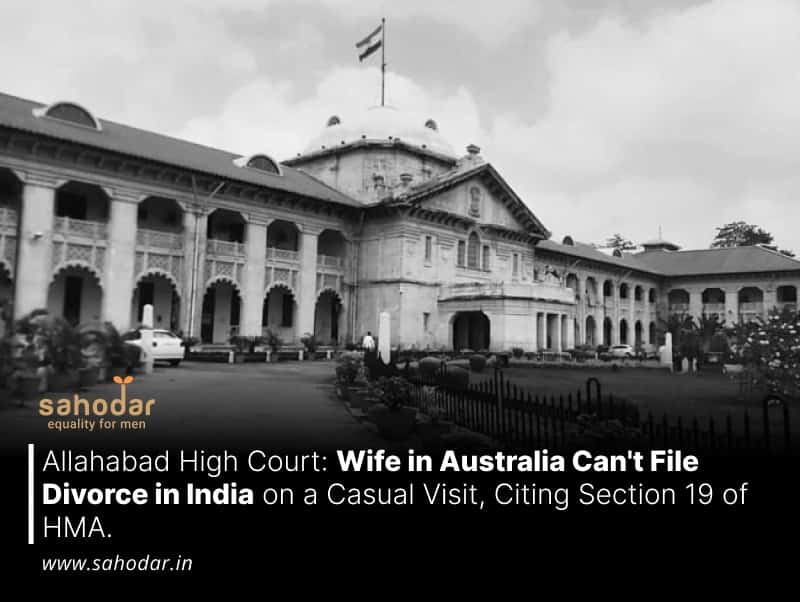“Considering the undisputed status of wife’s residency in Australia, the provisions of Section 19 of the Act would not come to her rescue.”
In a recent case, the Allahabad High Court adjudicated an appeal brought forth by a wife pursuant to Section 19 of the Family Courts Act, 1984. The genesis of this appeal stemmed from a prior ruling issued on August 11, 2023, by an Additional Principal Judge at the Family Court under the provisions of Section 13 of the Hindu Marriage Act, 1955. The basis for the Family Court’s decision to dismiss the divorce proceedings lay in the alleged lack of territorial jurisdiction.
The division bench, comprising Justices Saumitra Dayal Singh and Syed Aftab Husain Rizvi, elucidated that the mere act of temporarily visiting a jurisdiction does not ipso facto confer jurisdiction upon a court in that locale to adjudicate divorce matters. Although the term ‘residing’ remains undefined within Section 19 of the Family Courts Act, the prevailing interpretation suggests a requirement of sustained habitation within the geographic ambit of the court’s jurisdiction for initiating divorce proceedings.
In the case at hand, the wife ordinarily resides in Australia and initiated divorce proceedings during a brief visit to India. Consequently, the High Court affirmed that, as a matter of law, she did not meet the residency criteria within the territorial jurisdiction of the Family Court in Moradabad. The High Court found no legal infirmity in the previous ruling. Nonetheless, it noted that any future alteration in the wife’s residency status may give rise to a fresh legal cause of action, predicated on the revised circumstances.

